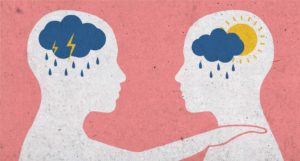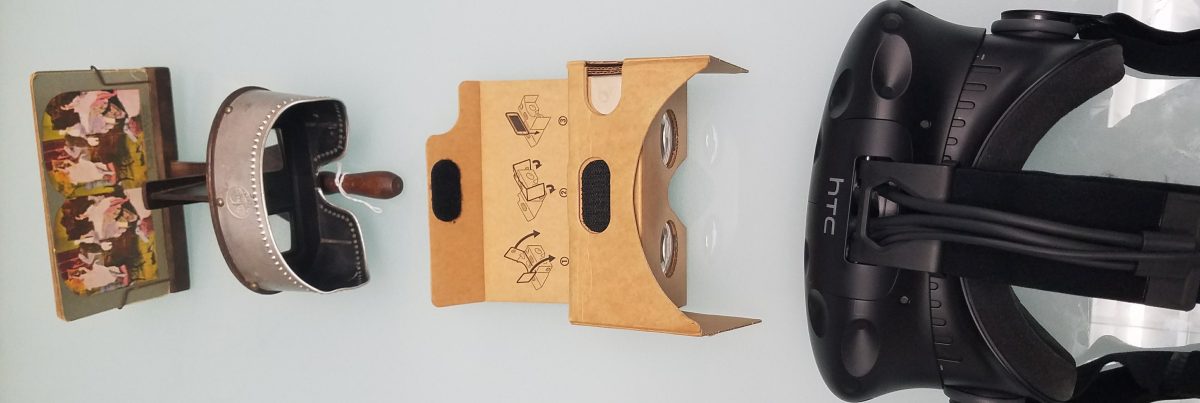 Have you ever wondered what it is that makes us human? What makes us different from androids? How do we know that we aren’t all living in virtual reality? These may be a few questions you may be asking yourself when you watch sci-fi movies or read sci-fi novels. Much of this futuristic material focuses on what makes humans different from machines. Some novels or movies focus on our views of reality. The novel “Do Androids Dream of Electric Sheep” explains that empathy is essential to every human and depicts the fallout of what happens when humans lack empathy toward one another. Empathy is needed by every human and is what separates us from machines. Empathy is by definition “the ability to understand and share the feelings of another” (English Oxford Living Dictionaries). Empathy is the very emotion that is keeping us from blowing everything to smithereens.
Have you ever wondered what it is that makes us human? What makes us different from androids? How do we know that we aren’t all living in virtual reality? These may be a few questions you may be asking yourself when you watch sci-fi movies or read sci-fi novels. Much of this futuristic material focuses on what makes humans different from machines. Some novels or movies focus on our views of reality. The novel “Do Androids Dream of Electric Sheep” explains that empathy is essential to every human and depicts the fallout of what happens when humans lack empathy toward one another. Empathy is needed by every human and is what separates us from machines. Empathy is by definition “the ability to understand and share the feelings of another” (English Oxford Living Dictionaries). Empathy is the very emotion that is keeping us from blowing everything to smithereens.
Empathy is one of the things that makes us human. Everyone is capable of experiencing empathy. The article “Empathizing 101” argues that college students have a lack of empathy. The author, Allie Grasgreen, claims that “college students today are 40 percent less empathetic than those who graduated two or three decades ago”. She is arguing that college students are continuing to become less and less empathetic. I disagree with her. I feel that college students are becoming more and more empathetic. There are college students performing small acts of empathy every day. I see them open doors for people and putting others needs before their own. So, if anything there is an increased amount of empathy within college students. Grasgreen gives us a quote that explains “the key to developing empathy, she says, is for people to witness others engaging in empathetic behavior”. Grasgreen is telling us that empathy cannot just merely be taught, but it needs to be experienced in order for people to gain empathy. I feel that empathy can be taught if someone wants to learn empathy. It is a choice to have empathy. Either you have empathy, or you do not. Empathy can be taught to anyone willing to learn.
Empathy plays a major role in the theme for “Do Androids Dream of Electric Sheep”. We are constantly seeing how empathy or lack thereof has had made a huge impact on this futuristic world. The story is set in a world that is struggling to recover its empathy. Most people only take care of live animals to gain a high status instead of truly wanting take of them out of the goodness of their heart. There are mercer boxes that are helping people to regain the empathy that they once had. Androids are being asked questions to determine whether if they are human or not. The police who are asking these questions to solicit an empathic response and kill on sight if they do not receive an empathetic response. These police officers are called bounty hunters and we could argue that they lack empathy themselves. Who could kill without any kind of or empathy? We could argue that empathy could be what separates us from androids. Empathy could be what makes us human.
The article “Reading books and watching films makes you kinder in real life” talks about how people are able to sympathize with the emotions of characters within books and movies. The article also talks about how fiction is able to spark our imaginations during empathetic situations. Many works of fiction mention the fallout of what happens when we lack empathy toward one another. We are able to better empathize with other people by viewing or reading works of fictions. This is an interesting concept considering that “Do Androids Dream of Electric Sheep” is a book with a film called “Blade Runner” that is based on it. Both the book and the film focus on empathy as their overall theme. These two works of fiction of great examples of film and literature that instill the idea of empathy into our imaginations. Fiction is an important tool to use to help reinforce the idea of sympathy into people.
Empathy is what makes us all human. It can be learned and taught to others. We can reinforce the idea of empathy through the use of images and situations. Empathy the very emotion that is keeping us from blowing each to smithereens. When we lack empathy there is a fallout that follows that devastates everything in its path. Empathy is what separates humans from androids. We can have a better society if we just show how much we care for one another. We show that we are human by showing how much we care. Fiction is a great tool to use to reinforce the idea of sympathy. What we feel and how we act toward each other is what defines us as humans. If we have empathy, then we treat each other with kindness and respect and if we lack empathy then we treat each other with disdain and end up destroying each other. Since empathy is what makes us human then it would be good for our society to inspire empathy within others.
Work Cited:
Grasgreen, Allie. “Empathizing 101.” Inside Higher Ed, Inside Higher Ed, 24 Nov. 2010, www.insidehighered.com/news/2010/11/24/empathizing-101.
Surugue, Léa. “Reading Books and Watching Films Makes You Kinder in Real Life.” Via.hypothes.is, CNBC, 19 July 2016, via.hypothes.is/https://www.ibtimes.co.uk/reading-books-watching-films-makes-you-kinder-real-life-1571434#annotations:_MOsQlpyEeaiesf9ed4wVw.
“Empathy | Definition of Empathy in English by Oxford Dictionaries.” Oxford Dictionaries | English, Oxford Dictionaries, en.oxforddictionaries.com/definition/empathy.
Roberson, Chris, et al. Do Androids Dream of Electric Sheep? Boom! Studios, 2011.

 Have you ever wondered what it is that makes us human? What makes us different from androids? How do we know that we aren’t all living in virtual reality? These may be a few questions you may be asking yourself when you watch sci-fi movies or read sci-fi novels. Much of this futuristic material focuses on what makes humans different from machines. Some novels or movies focus on our views of reality. The novel “Do Androids Dream of Electric Sheep” explains that empathy is essential to every human and depicts the fallout of what happens when humans lack empathy toward one another. Empathy is needed by every human and is what separates us from machines. Empathy is by definition “the ability to understand and share the feelings of another” (English Oxford Living Dictionaries). Empathy is the very emotion that is keeping us from blowing everything to smithereens.
Have you ever wondered what it is that makes us human? What makes us different from androids? How do we know that we aren’t all living in virtual reality? These may be a few questions you may be asking yourself when you watch sci-fi movies or read sci-fi novels. Much of this futuristic material focuses on what makes humans different from machines. Some novels or movies focus on our views of reality. The novel “Do Androids Dream of Electric Sheep” explains that empathy is essential to every human and depicts the fallout of what happens when humans lack empathy toward one another. Empathy is needed by every human and is what separates us from machines. Empathy is by definition “the ability to understand and share the feelings of another” (English Oxford Living Dictionaries). Empathy is the very emotion that is keeping us from blowing everything to smithereens.